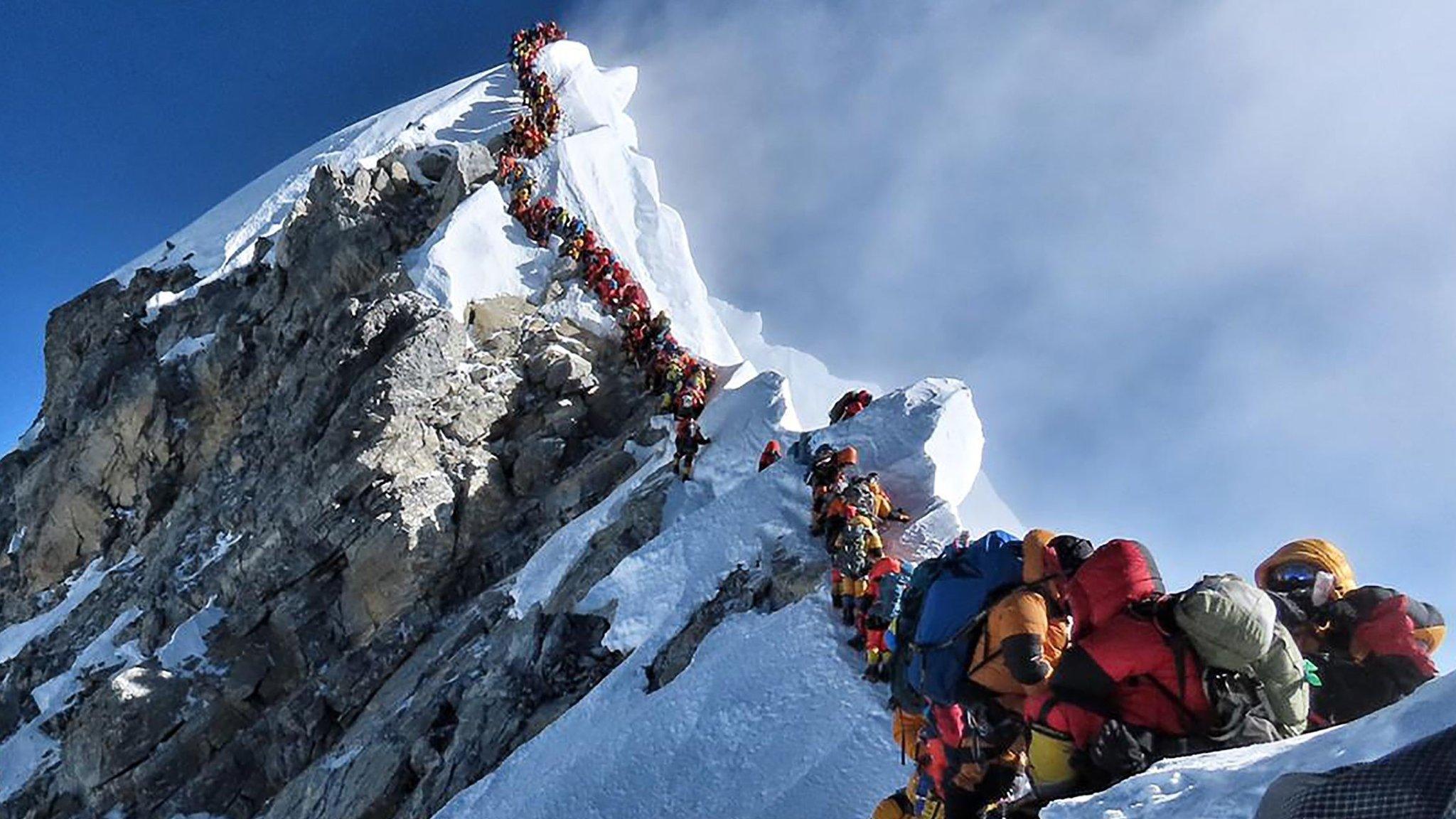Mount Everest: Caradog Jones marks 25 years since ascent
- Published
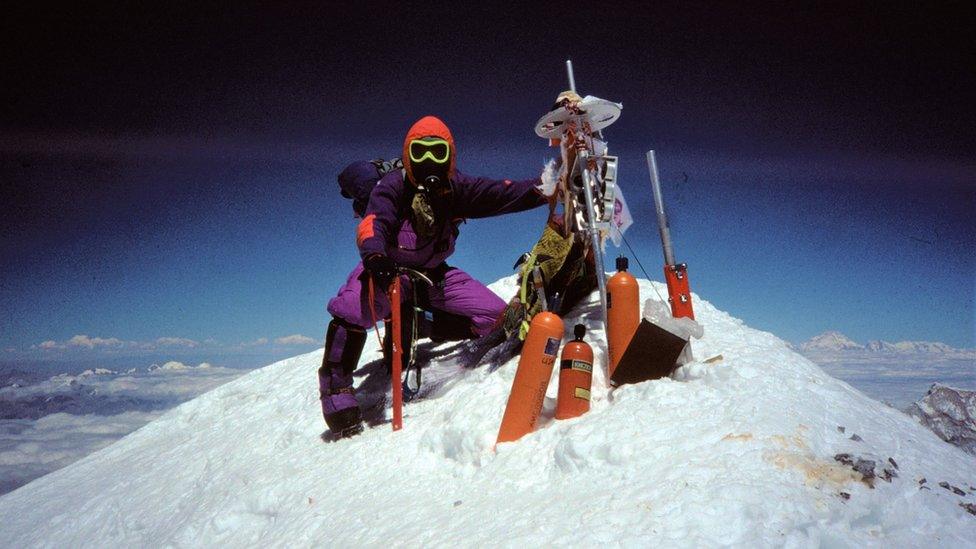
Caradog Jones became the first Welshman to reach the summit of Mount Everest in 1995
A mountaineer who became the first Welshman to climb Mount Everest is set to mark the 25th anniversary of his ascent.
Caradog 'Crag' Jones, from Pontrhydfendigaid in Ceredigion, reached the top of the world's tallest mountain on 23 May 1995.
Mr Jones and his Danish climbing partner, Michael Jorgensen, spent 10 weeks in the Himalayas for the ascent.
He said the climbed the mountain in the "style they wanted".
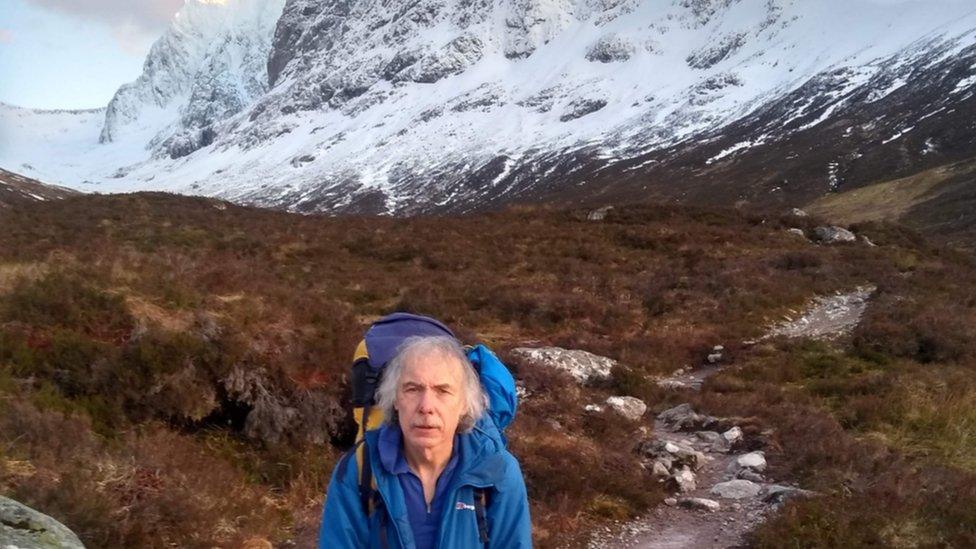
Caradog Jones, now 58, climbed Ben Nevis in March before coronavirus restrictions were imposed
Mr Jones and Mr Jorgensen are among the 4,000-strong list of people who have climbed the 8,848m (29,029ft) mountain since Sir Edmund Hillary and Sherpa Tenzing Norgay became the first in May 1953.
But Mr Jones was the first from Wales.
He was part of a wider international team led by English mountaineer, Henry Todd, but Mr Jones and Mr Jorgensen tackled the final ascent themselves along the Tibetan side of the mountain.
"The important thing was that we'd climbed it in the style we wanted to," he said.
"That meant not being dragged to the summit by a team of Sherpas with a guide. We climbed it as an independent pair, granted within a larger expedition."
He added the pair ran dangerously low on food and oxygen during the ascent, but were able to spend half an hour at the summit.
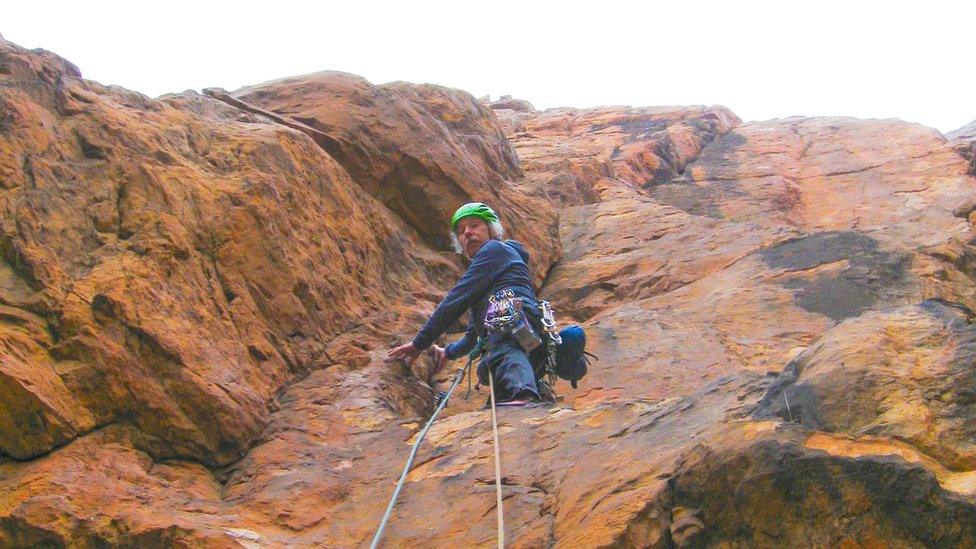
Caradog Jones picture in Morocco in 2019
Climbing 'more commercial'
Mr Jones said he feels climbing has changed since his ascent, becoming both more accessible and commercialised.
Last year, hundreds of climbers were pictured queueing to reach the mountain's summit.
"I think there's been a commercialisation of adventure in general, in that it's marketed as a lifestyle choice," he said.
"People have been duped into believing they can only buy adventure, that you can't just go off on your own and organise these things yourself."
He added: "Travel has become easier and cheaper. Also the weather forecasting in particular for mountaineering makes a crucial difference.
"You used to walk out blind into the teeth of a storm. We got caught on Everest for three days at the top camp at 8,300m (27,230ft) in a bad storm, making the outcome very uncertain."
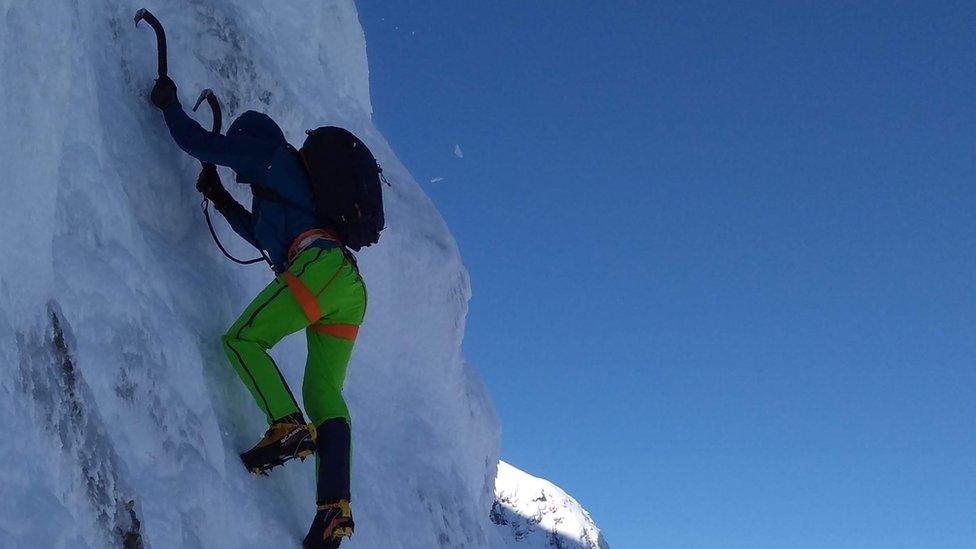
Caradog Jones pictured climbing Ben Nevis
How has coronavirus affected climbing?
The coronavirus crisis could offer a boost for local climbing and the environment, Mr Jones added.
"It's kind of constrained our horizons in so many ways, and that's beneficial to the environment because there's less air travel going on and that's always the negative side of international mountaineering," he said.
"I think there'll be a lot more local climbing. Wales, in particular, is a world-class venue for this.
"Climbers have been very patient, they've observed and respected the restrictions on the whole. So hopefully that will continue."
In terms of his own climbing, he hopes he can resume with his plans in the autumn if restrictions ease.
"I'd trained all winter to stay fit, hoping for a good spring's rock climbing but of course that didn't come to pass, so all that training was wasted.
"But hopefully by the autumn, I've got an expedition planned for South Georgia in the south Atlantic. If things are beginning to clear up by then, we hope to get down there. But we'll just have to wait and see."
- Published14 September 2019
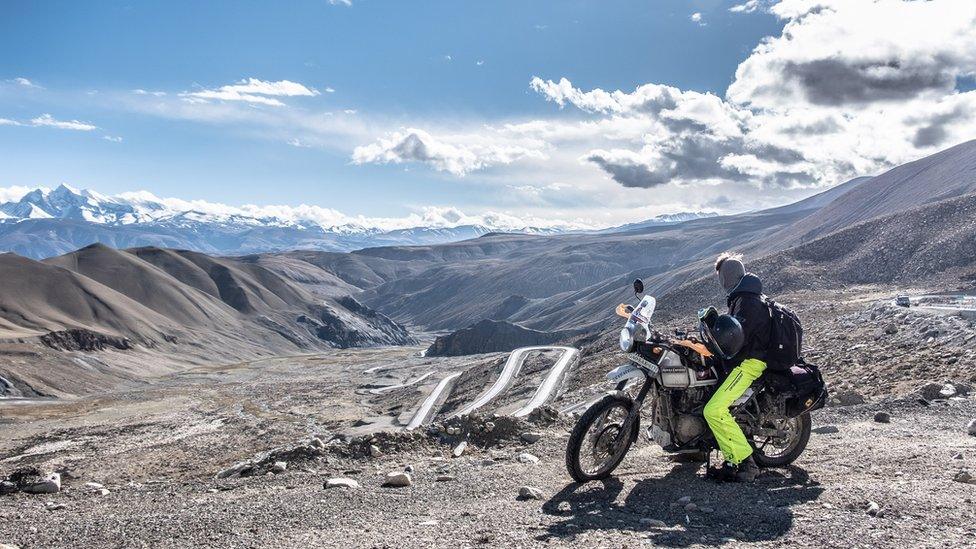
- Published7 May 2019
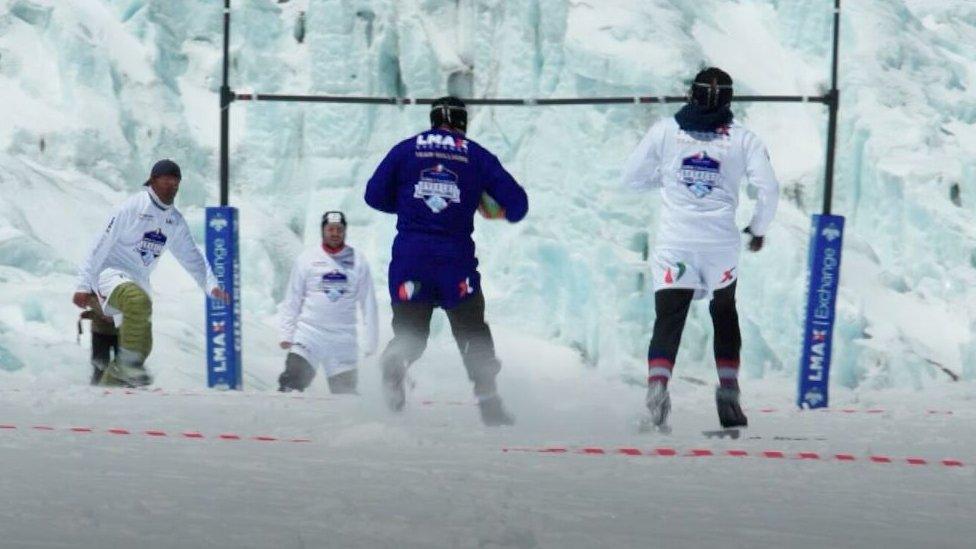
- Published15 February 2019
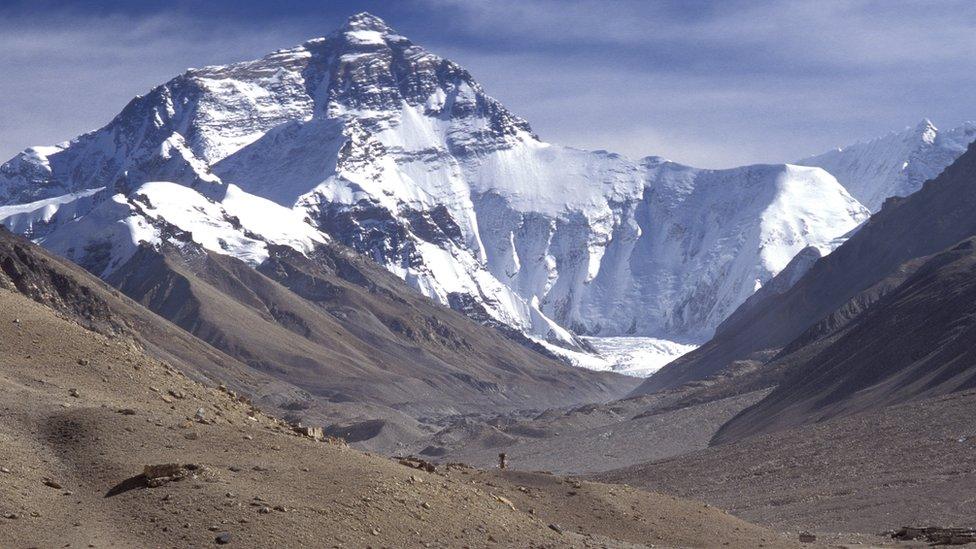
- Published14 August 2019
